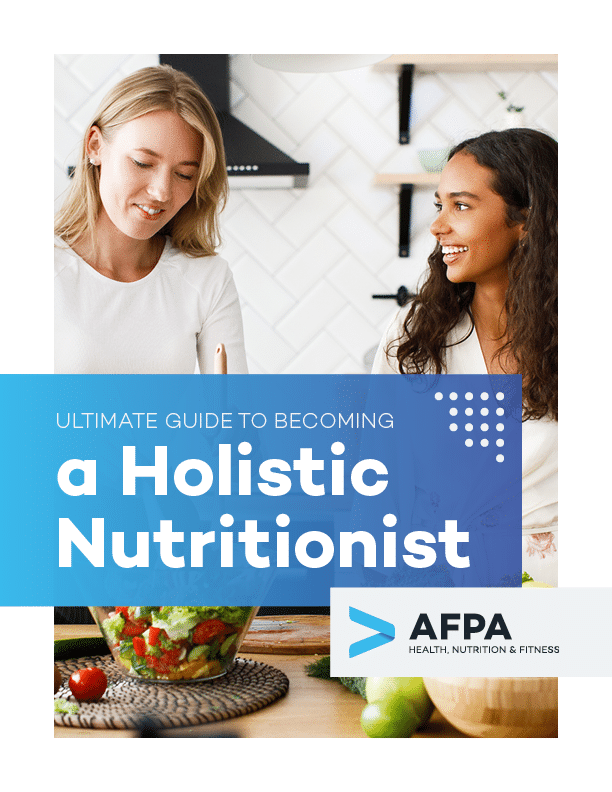It’s that time of year when a lot of people start thinking about losing weight, improving their diet, and making better lifestyle choices. So what happens when someone decides they’re ready to get help to make better food choices?
They probably go online and search for information to find a nutrition consultant in their area, or look for advice about healthy cooking, eating more fruits and vegetables, or diet and weight loss. In fact, a recent Pew Research survey found that 72 percent of people search for health information online.

Get Your Free Guide to Becoming a Holistic Nutritionist
Learn about the important role of holistic nutritionists, what it takes to be successful as one, and how to build a lucrative, impactful career in nutrition.
That’s great news for nutrition consultants. But how do you turn website visitors into clients? There’s a lot of moving parts to this in the online world. However, a well-written nutrition consultant bio is one part of your online presence that can help people understand what you do, show off your personality, tell your story, and help you win more clients. Here’s how to perfect your nutrition consultant bio:
Show Off Your Personality
Let’s face it, you’re not the only nutrition consultant out there. But you have your own unique approach to helping people make better food choices, change their eating behaviors, and improve their health. And you probably have your own ideas about food, the latest fad diets, and strategies to help people. As you write your bio, let your personality come through. It’s a great way to help people get to know, like, and trust you, and get a sense of what you’re like to work with. Check out this personality-packed example of a nutrition consultant bio from Real Food with Dana.
Tell Your Story
When someone wants to find a nutrition consultant to help them with their diet, they want to find someone who understands them. And that’s why telling your own story about food, nutrition, eating habits, and maybe even struggles and challenges, is so important. Everybody has a story. As part of your bio, tell your story about the life experiences that influenced you to become a nutrition consultant. Here’s an example: Check out what prompted Michelle Dwyer to become a nutritionist.
Explain Your Approach
In your bio, explaining your approach to nutrition consulting doesn’t have to be an exhaustive explanation. People want to read your bio page and quickly see if your approach to nutrition might be a match for their unique situation. So explain your approach. Are you a Paleo believer or support the Mediterranean diet? Do you specialize in developing nutrition plans for people with chronic diseases, or help a specific group of people like athletes, seniors, or new moms? Check out how nutrition consultant Brittany Mullins explains her approach.
Invite Prospects to Contact You
On your bio page, make it easy for potential clients to contact you or ask a question. Consider including your email address, social media handles, or even your phone number. It’s a great way to engage prospects, build relationships, and ultimately win more clients. You can even collect questions from prospects and clients this way to write a blog post such as this one featured on Lauren Conrad’s blog: Ask a Nutritionist; 6 of Our Burning Nutrition Questions.
If your current nutrition bio looks a little too much like a standard resume with job titles, duties, work experience, and education, give it a makeover using some of these strategies.
Interested in learning more about a career as a nutrition consultant? Check out AFPA’s Nutrition & Wellness Certification programs.

Get Your Free Guide to Becoming a Holistic Nutritionist
Learn about the important role of holistic nutritionists, what it takes to be successful as one, and how to build a lucrative, impactful career in nutrition.



